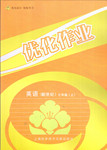题目内容
Strange stones of
One of the strangest mysteries in archaeology was discovered in the Diquis River Delta, in southern
56. The stones were discovered ________.
A. near the volcanoes B. in the south
C. in a grave D. in churches
57. The writer ________ in this passage.
A. admires the spheres very much
B. doesn't believe the spheres were once made by humans
C. tells us a discovery
D. thinks highly of the spheres
58. The underlined word “polished ” refers to ________.
A. buried B. wrapped C. made shining D. made big
59. According to the passage, which of the following is TRUE?
A. The stone balls found in the Diquis River Delta are all very huge.
B. The stone balls were unearthed in the graves.
C. The local people show great interest in the stone balls.
D. There are a lot of treasures in the stone balls.
60. The passage mainly tells us ________.
A. the stones are of great value
B. the stones proved to be made by non-humans
C. the stones are a mystery
D. the stones are ornaments
BCCCB

 培优三好生系列答案
培优三好生系列答案 优化作业上海科技文献出版社系列答案
优化作业上海科技文献出版社系列答案The passengers on the subway who caught a glimpse of me may have thought I was strange. In particular a gentleman sitting opposite me was always staring at me, looking at the cheese bread on the floor in front of me and then staring back at me. A passenger probably dropped it by mistake and got off at a previous stop, but the gentleman might not think so. “Next stop, St. Patrick Station” — my stop was quickly coming up. I had few minutes to either take the cheese bread, which nobody else was claiming, or left it there.
In those few minutes I felt my pride getting in the way. “What would others on the subway think of me if I took the cheese bread? Would they think that I was poor and hungry? Would they think that I was stealing?” The ignorant thing to do was say “yes” to any of those self-imposed questions. Actually, they were just my own thoughts. Though I would leave the subway, walk a block to my office, get settled at my desk, and sit comfortably in my office for the whole day, I couldn’t get rid of the enormous sense of guilt and regret.
My thoughts once pushed me towards pride and ignorance, but finally I had to admit I was wrong. This missing cheese bread could be a gift for a homeless person who suffered from cold and hunger. So why not overcome a little bit of my pride and pass along so much kindness?
Just as the doors opened at my stop, I grabbed the cheese bread and left the subway. It felt awesome, but I didn’t care if people were looking at me or what they were thinking. Instead of going directly to my office as usual, I walked a few more blocks up to Queen’s park, where I often saw a homeless man sitting outside. I always wanted to give him something, but only today I walked toward him, who wrapped himself in a sleeping bag. I was full of satisfaction, and so did the homeless man, I thought.
【小题1】The gentleman kept staring at the author because _______.
| A.he wanted to talk to the author |
| B.the author appeared too nervous |
| C.the author was going to get off |
| D.he might think the author dropped the bread |
| A.easily obtained | B.deliberately created |
| C.strongly supported | D.completely unaccepted |
| A.He noticed that no one was looking at him. |
| B.He didn’t want to see the cheese bread to go to taste. |
| C.He valued kindness more than his own pride. |
| D.He remembered a homeless man at that very moment. |
The passengers on the subway who caught a glimpse of me may have thought I was strange. In particular a gentleman sitting opposite me was always staring at me, looking at the cheese bread on the floor in front of me and then staring back at me. A passenger probably dropped it by mistake and got off at a previous stop, but the gentleman might not think so. “Next stop, St. Patrick Station” — my stop was quickly coming up. I had few minutes to either take the cheese bread, which nobody else was claiming, or left it there.
In those few minutes I felt my pride getting in the way. “What would others on the subway think of me if I took the cheese bread? Would they think that I was poor and hungry? Would they think that I was stealing?” The ignorant thing to do was say “yes” to any of those self-imposed questions. Actually, they were just my own thoughts. Though I would leave the subway, walk a block to my office, get settled at my desk, and sit comfortably in my office for the whole day, I couldn’t get rid of the enormous sense of guilt and regret.
My thoughts once pushed me towards pride and ignorance, but finally I had to admit I was wrong. This missing cheese bread could be a gift for a homeless person who suffered from cold and hunger. So why not overcome a little bit of my pride and pass along so much kindness?
Just as the doors opened at my stop, I grabbed the cheese bread and left the subway. It felt awesome, but I didn’t care if people were looking at me or what they were thinking. Instead of going directly to my office as usual, I walked a few more blocks up to Queen’s park, where I often saw a homeless man sitting outside. I always wanted to give him something, but only today I walked toward him, who wrapped himself in a sleeping bag. I was full of satisfaction, and so did the homeless man, I thought.
【小题1】The gentleman kept staring at the author because _______.
| A.he wanted to talk to the author |
| B.he might think the author dropped the bread |
| C.the author appeared too nervous |
| D.the author was going to get off |
| A.easily obtained |
| B.strongly supported |
| C.deliberately created |
| D.completely unaccepted |
| A.He noticed that no one was looking at him. |
| B.He didn’t want to see the cheese bread to go to waste. |
| C.He remembered a homeless man at that very moment. |
| D.He valued kindness more than his own pride. |